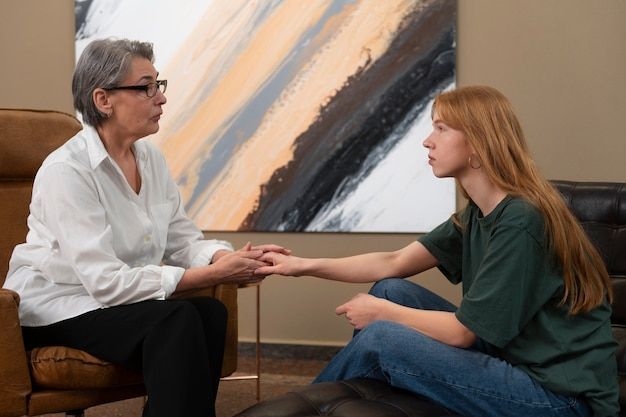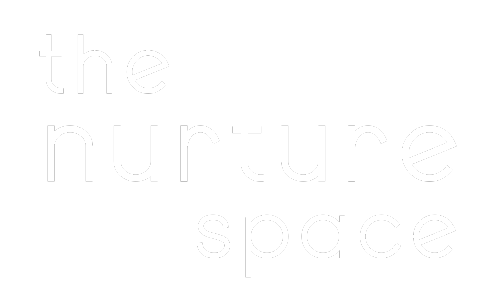The Nurture Space
Grief and Loss Counselling in Adelaide
Grief, a profound emotional response to loss, is as natural as it is inevitable, reflecting the depth of our connections to those we love and care about. At The Nurture Space, we understand that the journey through grief is not only about grieving people coping with the immediate aftermath of loss but also about healing and finding a new sense of normalcy.
Our grief and loss counselling services offer a compassionate pathway through the intense emotional turmoil that often accompanies the loss of a loved one. By engaging with our specialised counselling, individuals can navigate the complex emotions and reactions that make up the grieving process, finding support and understanding in their times of need.

Understanding Grief
Grieving is a deeply personal experience that varies significantly from one person to experience loss, to another, influenced by cultural, social, and personal factors. The grieving process can be seen as an emotional and psychological journey that an individual undergoes to come to terms with a significant loss.
This journey involves a range of five stages of emotions and states, commonly identified as the five stages of grief: denial, anger, bargaining, depression, and acceptance.
The Personal Nature of Grief
It's important to recognize that not everyone will experience all these five stages of grief, nor will they necessarily proceed in a neat, sequential order. Grief is unpredictable and unique; what is a moment of acceptance one day may revert to anger or denial the next.
This nonlinear experience of grief is why personalised grief counselling at The Nurture Space is so crucial. We provide the flexibility and understanding needed to support each individual in their own way, respecting their unique grieving process.
Physical and Emotional Impact of Grief
Grieving a death is not only an emotional response but can also have physical repercussions. Some individuals might experience physical symptoms such as changes in appetite, sleep disturbances, or physical pain, reflecting the intense stress that grief and death can impose on one’s physical health.
Recognizing these symptoms and feelings as part of the natural response to grief helps in addressing them more effectively through both emotional and physical support strategies.
Grief and Daily Life
The impact of grief extends into every aspect of daily life. A grieving person might find it challenging to perform routine tasks or maintain interest in activities that were once enjoyable. This disruption is a significant obstacle, yet with supportive resources like grief support groups and individual grief counselling, those grieving can find ways to adapt and even cope with grief itself.
Grief support plays a vital role in helping individuals navigate these challenges, offering tools and strategies that allow them to continue engaging with life while honouring their loss.
The Role of Grief Counseling
At The Nurture Space, grief counselling involves more than just talking through emotions. It includes a variety of therapeutic approaches tailored to meet the needs of each person. From art therapy and narrative therapy to more traditional talk therapies, our counsellors help individuals express and process their grief in ways that resonate with them personally.

Support Beyond the Individual
Understanding that grief affects not just individuals but also their families and friends, we emphasise the importance of support services that can assist entire communities. Our approach includes facilitating support groups and family counselling sessions, ensuring that everyone touched by the loss has access to support and guidance.
Anticipatory Grief
Anticipatory grief is another focus area at The Nurture Space. This type of grief occurs before an impending loss, such as during a prolonged illness of a family member. Anticipatory grief includes many of the same emotions as conventional grief but can also involve unique challenges, such as preparing for the loss while also cherishing the time remaining with the loved one.
Counselling for anticipatory grief helps individuals and families navigate these complex emotional landscapes, offering support and understanding in preparing for and eventually coping with the loss.
The Grieving Process
The grieving process is a deeply personal journey that manifests in many forms, significantly impacting every aspect of a person's life, emotional, physical, and social. As individuals navigate through their grief, they often encounter a spectrum of feelings including sadness, pain, anger, confusion, experience loss, and disorientation. These emotions are part of the natural response to the significant loss of a loved one, reflecting the depth of their relationships.

The Physical Symptoms of Grieving
Emotionally, grief can lead to a feeling of emptiness and intense sadness, making everyday activities feel overwhelming. Physically, individuals might experience symptoms of grief counselor such as fatigue, anxiety, sleep disturbances, or a lack of appetite, which are direct manifestations of their emotional stress impacting their physical health. Socially, the grieving process can cause individuals to withdraw from social interactions, affecting relationships and how they connect with others.
The Importance of Support Networks
The importance of grief support from family, friends, and grief counselling professionals cannot be overstated during this difficult time alone. Support groups and bereavement counselling services play a critical role, offering a space for sharing experiences and feelings, which helps normalise the wide range of emotions and reactions that come with grief.
At The Nurture Space, we emphasise that there is no "right or wrong way" to grieve, and our grief, counselling and support strategies are tailored to meet each individual's needs, helping them to process their grief in their own way and timeline.
Adapting to Life After Loss
Navigating the grieving process often involves adapting to a new daily life without the deceased, which can be one of the most challenging aspects of grief. Grief support services, including grief support calls and bereavement support programs, are essential in helping individuals build resilience and find new meanings in life after a loss.
This support is crucial not only for overcoming obstacles but also for fostering an environment where the bereaved can begin to envision a new path forward, integrating their loss into a revised narrative of their lives.
Complicated Grief

Complicated grief is a persistent, heightened state of mourning that can severely disrupt the life and health of the grieving person. This form of grief is characterised by an extended grieving period and includes a range of symptoms such as an intense longing for the deceased, difficulty accepting the death, and pervasive bitterness or anger related to the loss.
Individuals experiencing other forms of complicated grief might also feel a sense that life holds no meaning without their loved one, or they may be unable to imagine a future without them.
Recognising and Addressing Complicated Grief
This condition differs from the normal grieving process in its severity and the prolonged nature of its symptoms, which can lead to significant emotional distress and impairment in social, occupational, or other important areas of functioning.
The role of grief counselling becomes particularly crucial in these cases. Grief counsellors at The Nurture Space are trained to recognise the signs of complicated grief and provide the necessary interventions that can guide individuals towards healing.
Therapeutic Approaches for Complicated Grief
Grief counselling for complicated grief often involves helping individuals process and express their feelings of loss, addressing the unresolved emotional issues that might be causing their intense grief reactions. Techniques might include narrative therapy, where individuals are encouraged to articulate their story of loss and identify the unfinished business with their deceased loved one.
Moreover, support groups and one-on-one sessions can help individuals feel less isolated in their experiences, providing them with grief support from others who understand the depth of their pain.
Cognitive-Behavioral Interventions
The treatment for complicated grief may also integrate cognitive behavioural approaches to help modify unhelpful thinking patterns and behaviours that are maintaining the grief reaction. Such interventions are aimed at helping individuals accept the reality of the loss and begin to engage in life once again.
At The Nurture Space, our goal is to offer a compassionate and supportive environment where individuals can find effective ways to manage their grief and move toward recovery at their own pace.
Grief Counseling Techniques
Grief counselling techniques are diverse and tailored to the unique emotional and psychological needs of those experiencing grief. One such effective approach is narrative therapy, where individuals are encouraged to articulate and share their story of loss.
This process helps people understand and reframe their experiences, which is often crucial in the grieving process. By recounting their emotions and events, individuals can find a way to contextualise their pain and begin to process grief. At The Nurture Space, we facilitate these sessions, providing a safe environment where stories are honoured and validated, which can be particularly healing for those dealing with complicated grief.
Integrative Techniques in Grief Counseling
Furthermore, grief counselling at The Nurture Space integrates various therapeutic techniques such as Emotional Freedom Technique (Tapping), somatic modalities, Narrative Therapy, guided meditation, and Acceptance Commitment Therapy. These methods help manage the intense sadness and complicated emotions that come with grieving, providing multiple pathways for individuals to express and heal according to what resonates best with them.
This eclectic approach ensures that every grieving person receives personalised support tailored to their specific needs, aiding them as they work through their grief and begin to envision a new life post-loss.
Grief Support and Community Resources
Grief support encompasses more than individual counselling sessions and taps into a wide array of community resources to provide ongoing assistance. At The Nurture Space, we collaborate with local health services, community centres, and utilise online platforms to create an extensive grief support network. These support services are tailored to recognise and address the multifaceted nature of grief, offering both immediate and sustained aid to those in need.
The Role of Community Centers and Online Resources
Community centres serve as crucial hubs for grief support, offering seminars, workshops, and group sessions that help individuals understand and process their grief. Similarly, online grief counseling platforms can offer round-the-clock accessibility to resources, making it easier for those who may have mobility issues or time constraints to receive the support they need. These platforms often feature discussion forums, expert articles, and contact information for grief support calls, ensuring help is just a click away.
Integrating Social and Emotional Support
The importance of social connections in the grieving process cannot be understated. By providing access to support groups and community gatherings, individuals are reminded that they are not alone in their journey through grief.
These groups not only share emotional support and bereavement counselling but also practical advice for coping with daily life post-loss, reinforcing the communal resilience and collective healing that is possible when people come together in understanding and empathy.

Disenfranchised Grief
Disenfranchised grief occurs when society fails to acknowledge the grief an individual feels, often because the loss does not fit into conventional norms or because the relationship is not recognised. This lack of acknowledgment can make the grieving process incredibly difficult, as the griever may feel they must suppress their emotions or grieve in solitude.
At The Nurture Space, we recognise the unique pain that comes with disenfranchised grief and strive to provide a safe space where all forms of grief are validated and supported.
Addressing the Challenges of Disenfranchised Grief
Recognising and addressing disenfranchised grief is crucial for effective recovery. Our approach includes educating the community and creating awareness about the various forms grief can take. By advocating for inclusivity in grief acknowledgment, we aim to reduce the stigma and isolation associated grieving people with disenfranchised grief.
Grief counselling sessions designed for those experiencing this type of grief focus on acknowledging their loss fully and working through the emotions that have been silenced or overlooked by society.
Supporting Emotional Expression and Healing
The Nurture Space offers specialised grief counselling strategies for managing disenfranchised grief, helping individuals express and validate their feelings without fear of judgement. We provide resources that encourage self-expression, such as art therapy and journaling, and promote grief support groups where experiences of disenfranchised grief can be shared and communal healing can be fostered.
These interventions are designed not just to cope with the immediate feelings of loss but also to address the longer-term emotional impact of being disenfranchised in one's grief.
Moving Forward: Life After Loss

Moving beyond grief is a complex, deeply personal process that involves more than just overcoming the pain of loss. It's about integrating the memory of the loved one into the very fabric of one’s daily life, finding meaningful ways to honour their memory while continuing to engage with life.
Grief and loss can reshape a person's existence, but through grief counselling, individuals learn to weave these changes into a new pattern of living. This approach recognises the uniqueness of each person’s grief, reinforcing that there is no right or wrong way to process the feelings associated with a traumatic event like the death of a loved one.
Creating a New Normal
Finding balance and peace after a loss does not mean forgetting or moving on in the traditional sense, but rather moving forward with the loved one's memory held respectfully in heart and mind.
It involves developing rituals or traditions that keep their memory alive, whether through annual gatherings, personal acts of remembrance, or engaging in causes or activities the loved one cared about. Grief counselling provides the tools and support needed to explore these new avenues, helping individuals to manage their grief and begin to enjoy life again, with their loved one’s memory integrated into their renewed daily routines.
The Role of Support Systems
Support from other family member, friends, and community resources plays an indispensable role in this transition. Social support is crucial, as it offers not just comfort but also practical help and a sense of normalcy amidst the chaos of grief.
Engaging with support groups, speaking with a grief counsellor, or even participating in community events can provide the reassurance and empathy needed to navigate and cope during this challenging time. Additionally, many find solace in bereavement support programs offered by organisations like the Hospice Foundation, which understand the long journey of grief and offer specialised guidance.
Embracing Life with New Perspectives
Ultimately, moving forward after a loss is about forming a new relationship with the loved one that exists in memory and influences the bereaved’s life in positive, ongoing ways.
Grief counselling aims to help individuals see this transition not as a closure, but as a new chapter where the loved one's influence continues to be felt. It’s about learning to live with loss, not just coping with it, allowing for personal growth and new experiences, informed by the love and lessons of the one who has passed.
Conclusion
In conclusion, grief is not a journey to be walked alone. It requires the warmth of understanding, the strength of community, and the guidance of experienced professionals. At The Nurture Space, we walk alongside you, offering the support and empathy needed to navigate this challenging yet transformative path. Together, we can find a way forward, turning grief into a powerful catalyst for growth and renewal.
Session Pricing
Initial Individual Counselling Session: $275
Follow Up Individual Counselling Session: $220
Please Note:
Sessions are not covered under Medicare's Mental Health Care Plan.
Some Private Health Cover Rebates may apply.
Ready to find out more?
We are here to support you on your healing journey. Book a free 15 minute Discovery Call to chat with our Therapist, Niki Gelekis.
